When it comes to talking about personal health, men aren’t often the best at opening up.
Whether it’s noticing something a little unusual or battling with suicidal thoughts, too many men’s lives have been lost due to them not talking to someone about it.
But awareness initiatives like Men’s Health Week are hoping to change this culture of silence surrounding men’s health.
Organised by the Men’s Health Forum and running from June 13 to June 19 across the UK, the theme of 2022’s awareness week is #manMOT, encouraging men to give themselves their own personal health check-in.
Men's Health Week 2022: June 13-19: Time for your MOT – https://t.co/EoyRYcYwgC pic.twitter.com/guq9LtUK5i
— Men's Health Forum (@MensHealthForum) May 25, 2022
However, men’s health is something that’s important not just for one week, but all year round.
We spoke to two organisations and a charity volunteer to find out the issues, stigmas and positive aspects surrounding men’s health across the north of Scotland today.
One thing they all agree on? It’s time for men to talk.
Clarity Walk
Matt Wallace is the general manager of Clarity Walk.
Based in Inverness, the social enterprise – which was set up in 2019 – offers digital detox walking programmes for men and women throughout the Highlands.
After suffering with suicidal depression, Matt wanted to start his own organisation based on the methods that helped him deal with his own personal struggles.
‘I wanted to be able to help others’
“I’m from Inverness originally and my background is in personal training which I had been doing since 2014,” says Matt.
“I ended up moving to Glasgow for work, but what it ended up doing was making me feel extremely isolated.
“I was spending too much time on my phone, I wasn’t looking after my body meaning I couldn’t do my job properly.
“My mental health took a nose dive and I got to the point where I was experiencing suicidal depression.
But what saved me was getting off my phone, getting out into nature and connecting with people.
“It helped me so much, and I wanted to be able to help others in the same way.”
Reconnect to disconnect
Clarity Walk’s ethos is to improve people’s wellbeing by reconnecting with nature and disconnecting with digital lives on phones and computers.
Ord Hill in North Kessock, Inverness, is one of the primary spots for Clarity Walk, offering easy foot trails and scenic views over the Moray Firth.
Depression and anxiety are a few of the reasons why men have taken part in Clarity Walks, but Matt adds that others take part purely for its accessible social aspects.
“For a guy, unless you’re going to the pub, when else are you going to meet someone?” Matt questions.
To get out, meet people and see new locations are some reasons why men like to take part.
“But the main thing binding them all together is the concept of walking and talking in a judgement-free zone.
“We barely even talk about men’s health, we just let the conversation be completely organic and positive.”
Men’s Only Project
Clarity Walk started a men’s only project in December last year.
It encourages men to walk and talk in a friendly environment whilst also building its own community in the process.
The project’s numbers are growing week by week and Matt opted to set it up after being put in contact with a young boy who had attempted to commit suicide.
Matt explains: “The idea for a men’s only project was inspired by a boy was sent to me for a one-to-one walk.
“His mum had said to me that they’d tried to commit suicide by jumping in front of a car.
“She asked me if I could walk and talk with him, so we drove out to the forest and chatted for around an hour – not even about his mental health, just general chat.
“By the end, the boy said to me, ‘I feel amazing now. Thank you so much for doing this for me’.
“I asked him why he came to Clarity Walk as opposed to a crisis line or a GP and he said that he could be himself here without feeling the need to have to talk about his mental health.
“This really inspired me to get the men’s only project started.
“It’s definitely going in the right direction and it’s helping guys have a place where they can be themselves without judgement.”
Stigma
Matt feels that there remains a large stigma surrounding men’s health in the Highlands.
However, he hopes Clarity Walk can help to reduce this by reaching out to those most isolated in rural communities.
“We know in the rural areas that that’s where men need this most,” he says.
“They’re isolated there and we know we can make a difference.
“We’re looking to expand all across the Highlands with Caithness and Wick first working with other third-sector organisations.”
Less conversation, more action
With Men’s Health Week taking place this coming week, Matt acknowledges the benefits of raising awareness around its wide-ranging issues.
But he says that he would also like to see more practical actions taken to combat them.
“There’s lots of awareness around many things nowadays. But in my eyes, awareness is useless if there’s no solution to go with it,” Matt explains.
“That’s what Clarity Walk is all about – to try and create solutions and implement something positive.
“That’s what we need across all sectors: to come together, collaborate and make a difference.”
Mikeysline
Lee Whittaker is a volunteer at Mikeysline, a crisis line and mental health support service set up to help prevent suicides among men and women in the Highlands.
“Mikeysline started in 2015 as a result of a local boy called Mikey Williamson who, alongside his friend Martin Shaw, sadly both committed suicide within 48 hours of each other,” Lee explains.
“Ron Williamson, Mikey’s uncle, realised that there wasn’t much support for young men in Highland communities to reach out to.
“So, that’s how Mikeysline came about.”
‘I don’t want anyone to feel like they have no one to turn to’
Lee has been a volunteer at Mikeysline for three years; the service has spaces (referred to as Hives) in Alness, Tain, Inverness and Nairn.
Lee offers one-to-one support services in his volunteer role and often holds talks in schools to help raise awareness of the charity.
He adds that each of Mikeysline’s volunteers have their own backstories which they bring with them into their roles.
“I’d been with the RAF for 22 years and started having suicidal thoughts during my experiences out in Afghanistan,” says Lee.
“I didn’t feel as though there was anyone I could talk to. So, that’s what made me want to volunteer with Mikeysline as well as go into a previous job at the welfare office within the RAF.
I didn’t want anyone to feel like I did – in a position where they felt they had no one to turn to.
“Now I understand better coping strategies, and learning how other people have managed is also helping me to obtain positive mental health.”
Encouraging men to speak up
A men’s only group has also been an integral part of Mikeysline’s support services over the last few years, in addition to its text and one-to-one support available.
“We encourage men to come along in a safe and open environment to chat about any issues each week or each month,” says Lee.
I’m a great believer in trying to reduce the stigma around male mental health and that’s why I’ve always been open and honest about my own experiences.
“The group is another output to try and get men to speak up.”
Benefits of volunteering
For Lee, being a volunteer at Mikeysline comes with a wide range of benefits – though he stresses that they can often be under appreciated on a more general scale.
“Sometimes volunteers can be overlooked, but with Mikeysline, we’re definitely made to feel valued and appreciated as volunteers,” says Lee.
“I think the main benefit is knowing that you may have helped someone when they had no one else to talk to.
“Knowing that they’ve gone away having felt better talking to you and been able to get through the night is huge for me.
“Learning new skills is also another big benefit, as well as understanding how to deal with your own mental health better.”
Continue to raise awareness
Moving forward, raising further awareness around men’s health is something that remains very important to Lee.
“I think events like Men’s Health Week are important to recognise,” says Lee.
“Over the last few years, especially with Covid, mental health has raised its profile and we’re seeing more celebrities coming out and speaking about it.
I do think we need to continue raising awareness – especially for men’s mental health.
Hebridean Men’s Cancer Support Group
Retired community education worker Don MacLean is the vice-chairman of the Hebridean Men’s Cancer Support Group based in Lewis.
Don believes it is Scotland’s only dedicated men’s cancer support group and its members meet weekly on Friday afternoons.
“I think it’s very unusual for Scotland’s only men’s cancer support group to be in the Western Isles as there are very reticent men here, but it seems to work,” says Don.
Cancer diagnosis
Don enjoyed the great outdoors in his profession, with hillwalking and kayaking among some of his favourite outdoor learning activities.
But a fortnight after he retired, he was hit with devastating news when he was diagnosed with stomach cancer.
This was when he first heard about the Hebridean Men’s Cancer Support Group.
“With the cancer group, we usually get a note from health practitioners when men here are diagnosed with cancer if they’d like to join the group,” Don explains.
“Even though I was a community worker and was used to going to various groups, when the group wrote to me, I held it off.
“I wish I’d gone much sooner.
“But now, I’ve been involved for six or seven years, my cancer is in remission and I haven’t looked back since.”
Supportive community
Founded in 2008, the group’s number of members has risen as high as 60 during its 14-year tenure.
Its core aim is to provide financial and personal support to men and their families who have been affected by cancer.
The cost of living crisis has made it more difficult recently for the group to support those in the Western Isles requiring cancer treatment, which often involves journeys back and forth to the mainland to receive treatment.
However, fundraising events held by other organisations and individuals have helped to raise money for the group.
Don says that he never fails to be amazed by the generosity of the community in the Western Isles.
“We have money raised throughout the year for us through various individuals and groups like people running half marathons,” Don explains.
“I think the Western Isles community is one of the most generous communities anywhere – I’m humbled by it.”
In terms of men’s health, Don believes the cancer group’s benefits are far ranging for its members as well as other cancer sufferers across the country.
“We help men financially if we can, but I think the main strength of the group lies in our Friday afternoon meetings,” says Don.
“It’s a men’s cancer group, but going there on a Friday afternoon, we talk about anything and everything but cancer nine times out of 10.
We keep in touch as well; if men aren’t feeling well, we make sure that we support one another right through the whole thing.
“Some of the men are involved with MacMillan Cancer Care or committees on the health board, so we have an impact not just to the men in the group, but to issues affecting cancer on a wider sense as well.”
Don’t be afraid to talk
Don goes on to add that there’s a strong “sense of community” within the group.
He believes it is this that helps men in the Western Isles to not be afraid to talk about their cancer prognoses, but to share their experiences which may go on to help others.
“One of the things I beat a drum about whenever we are invited to various community groups is that men are generally reticent about going to the doctor if we have something wrong with us,” says Don.
“We ignore it, put it to the back of our minds and just get on with it.
“But what the men’s group does is to advocate that if men think there’s anything wrong with them, go to the doctor with it.
I certainly think events like Men’s Health Week are important to raise awareness of things like cancer.
“If you’ve got cancer, the sooner you get diagnosed, the better. It gets so much worse if you just ignore it.”
For support on men’s health in Aberdeen, visit www.facebook.com/ManChatAbz
For more information on cancer support, call the Macmillan Cancer Support line on 0808 808 00 00.
For information and support on mental health, visit www.mind.org.uk
For a 24/7 support helpline with Samaritans, call for free on 116 123.
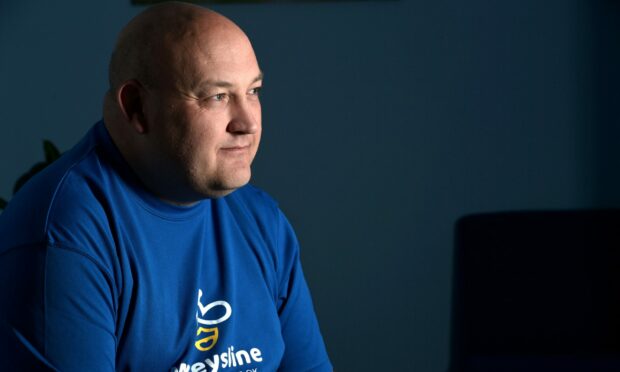
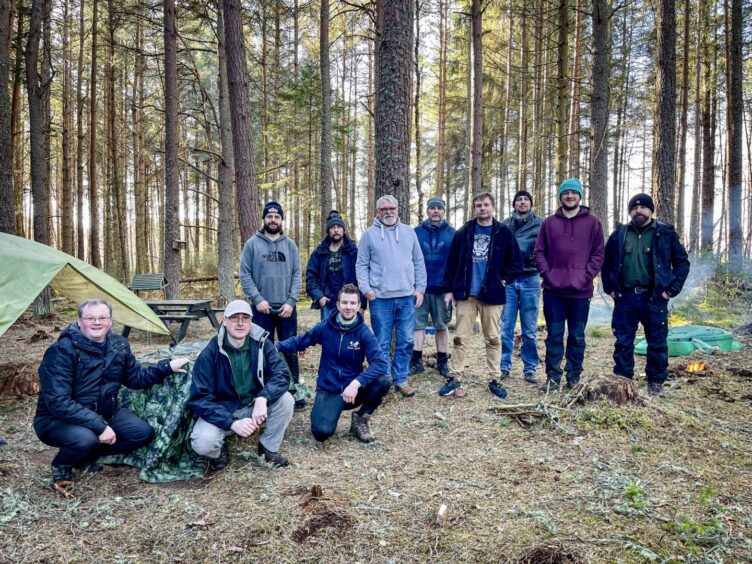
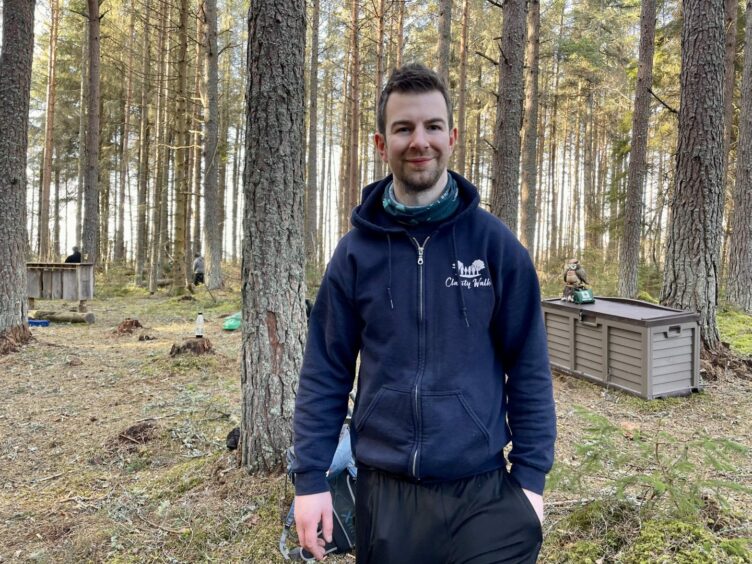
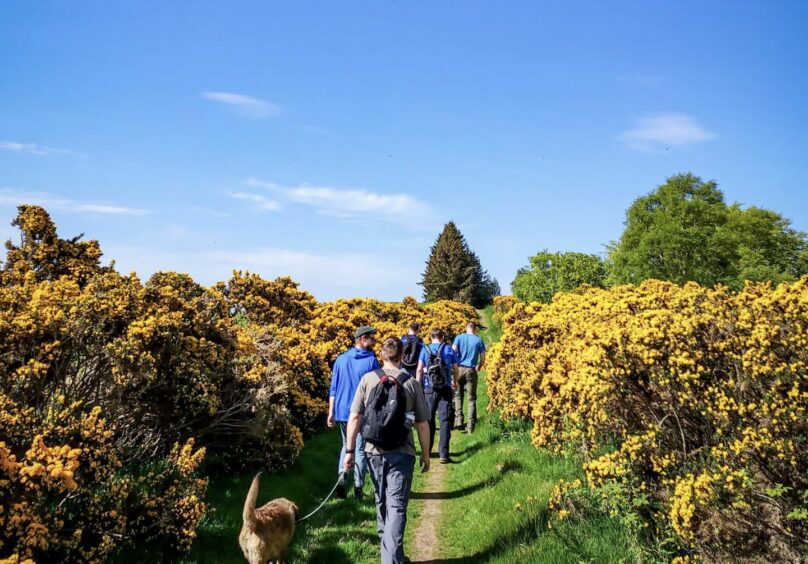
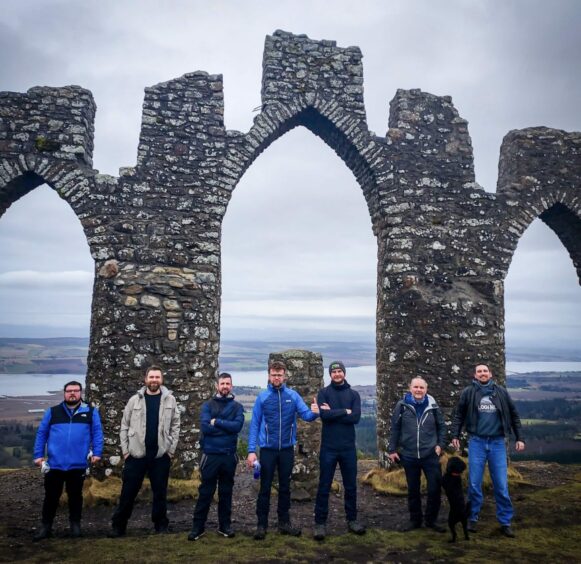
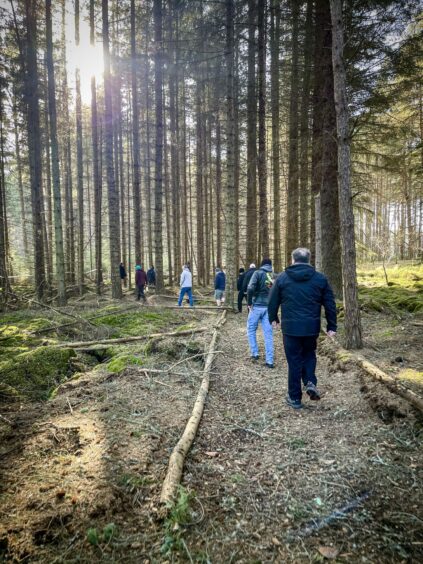
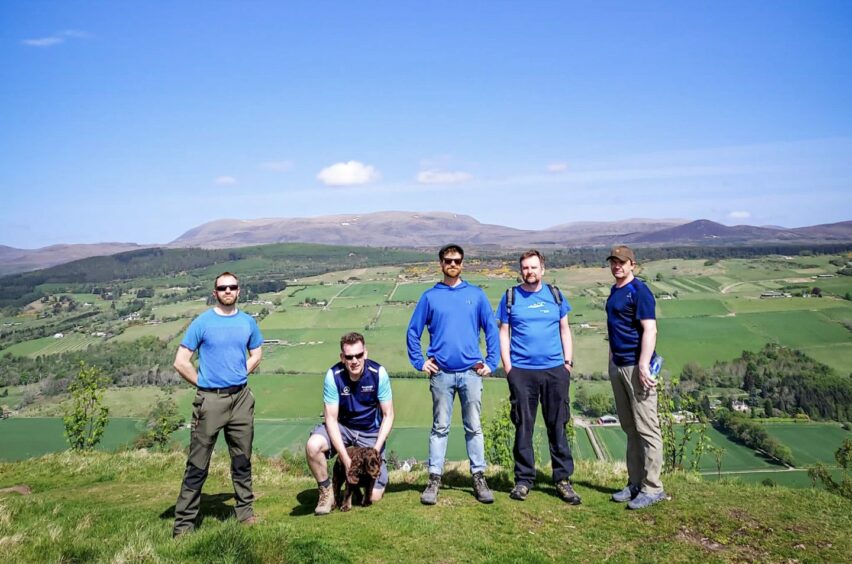
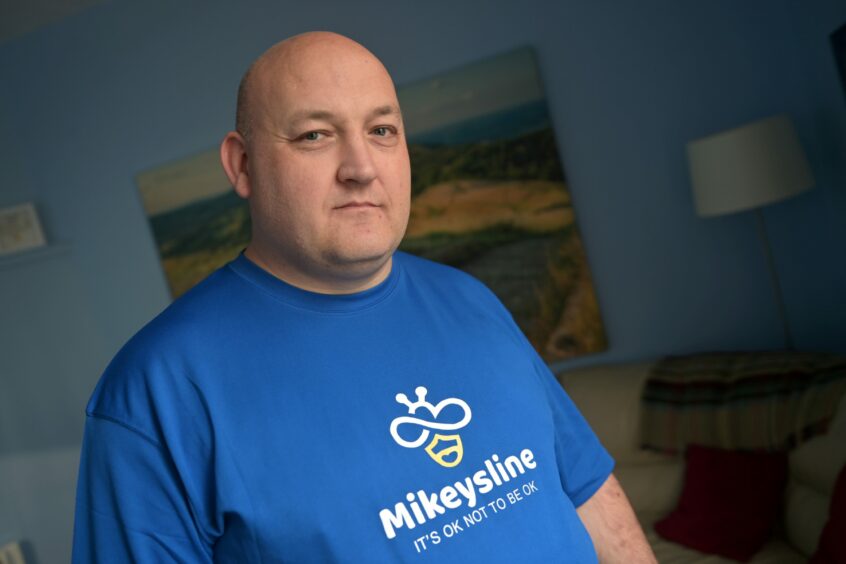
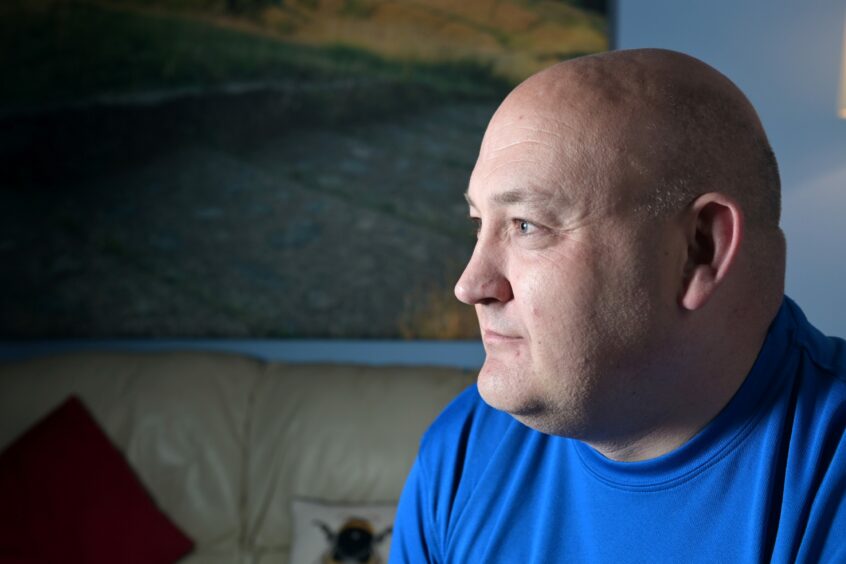
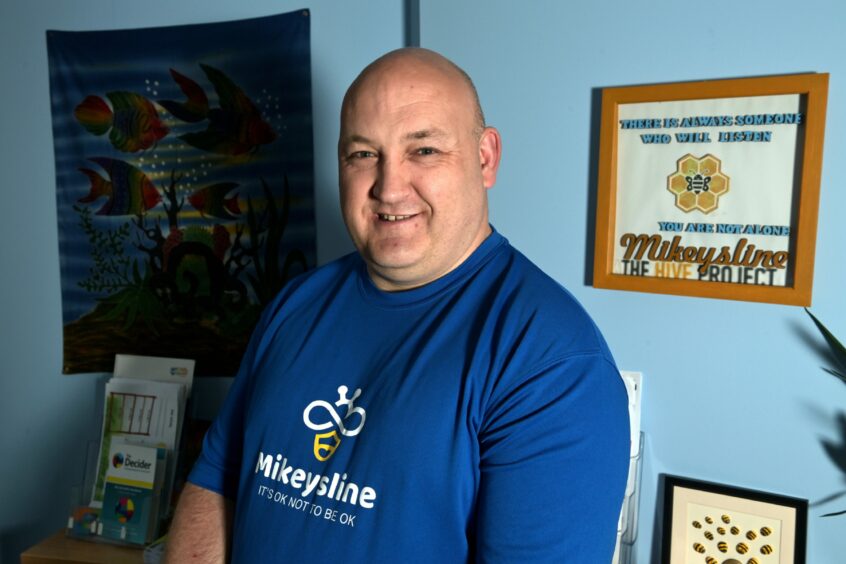
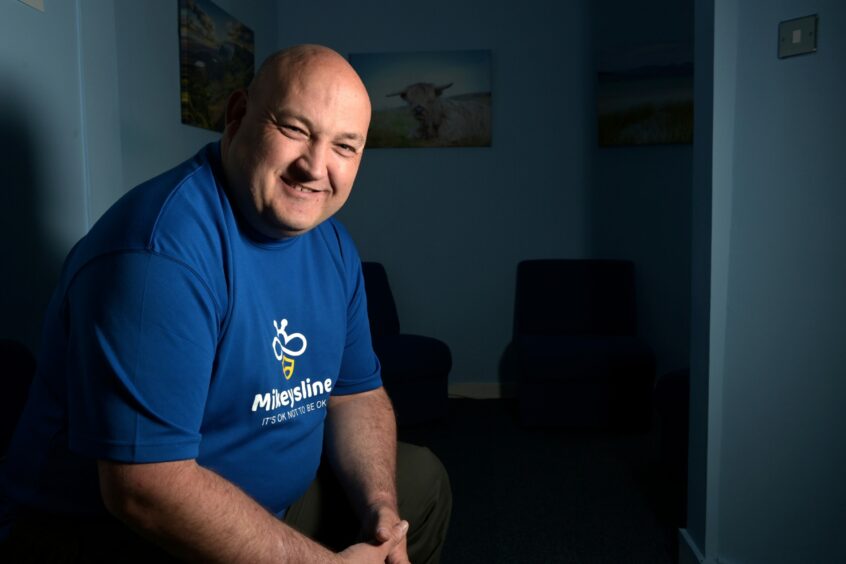
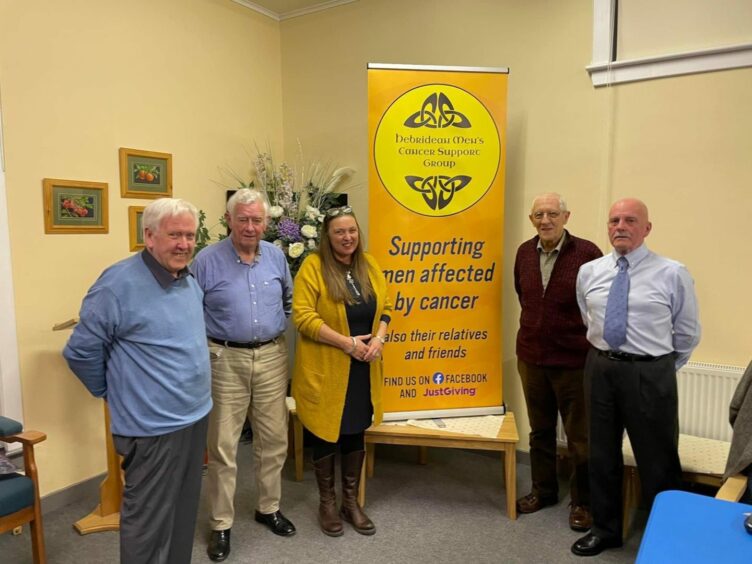
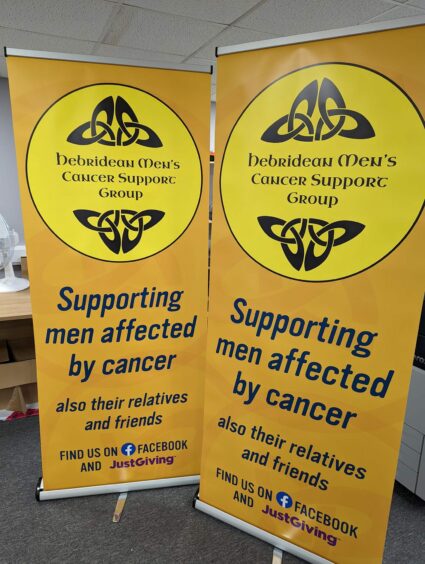
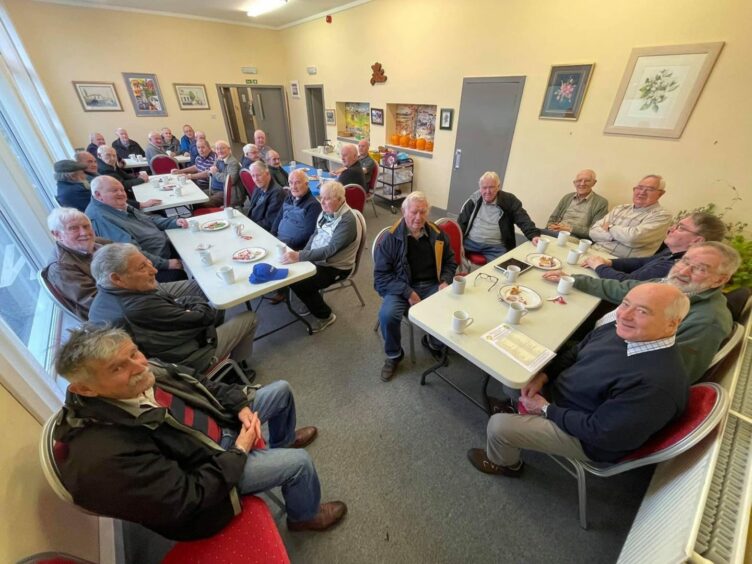
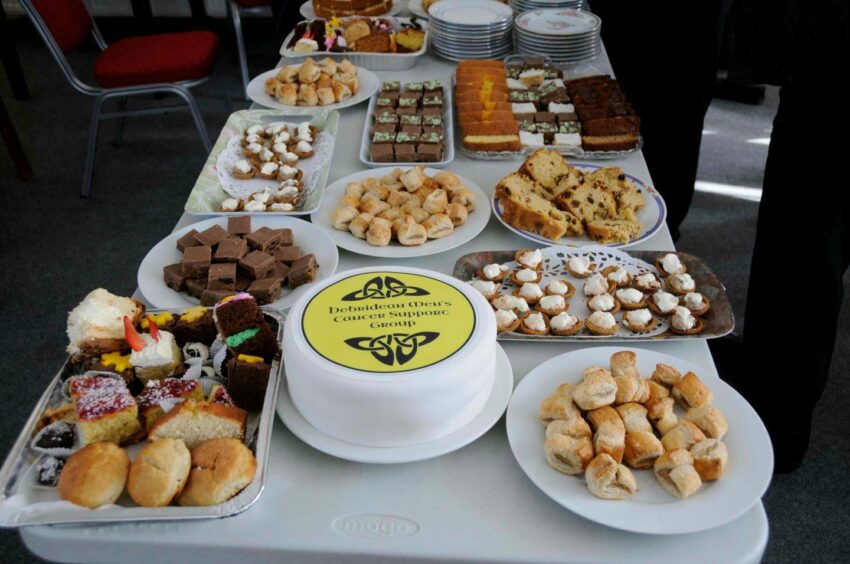
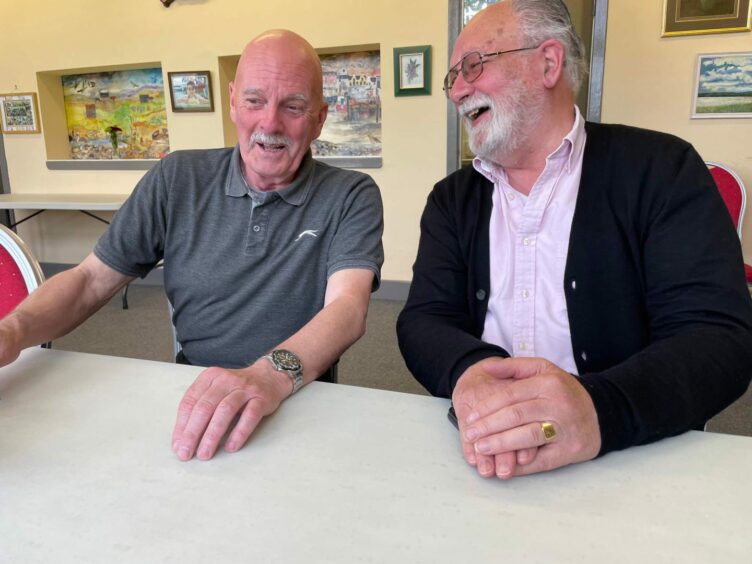
Conversation